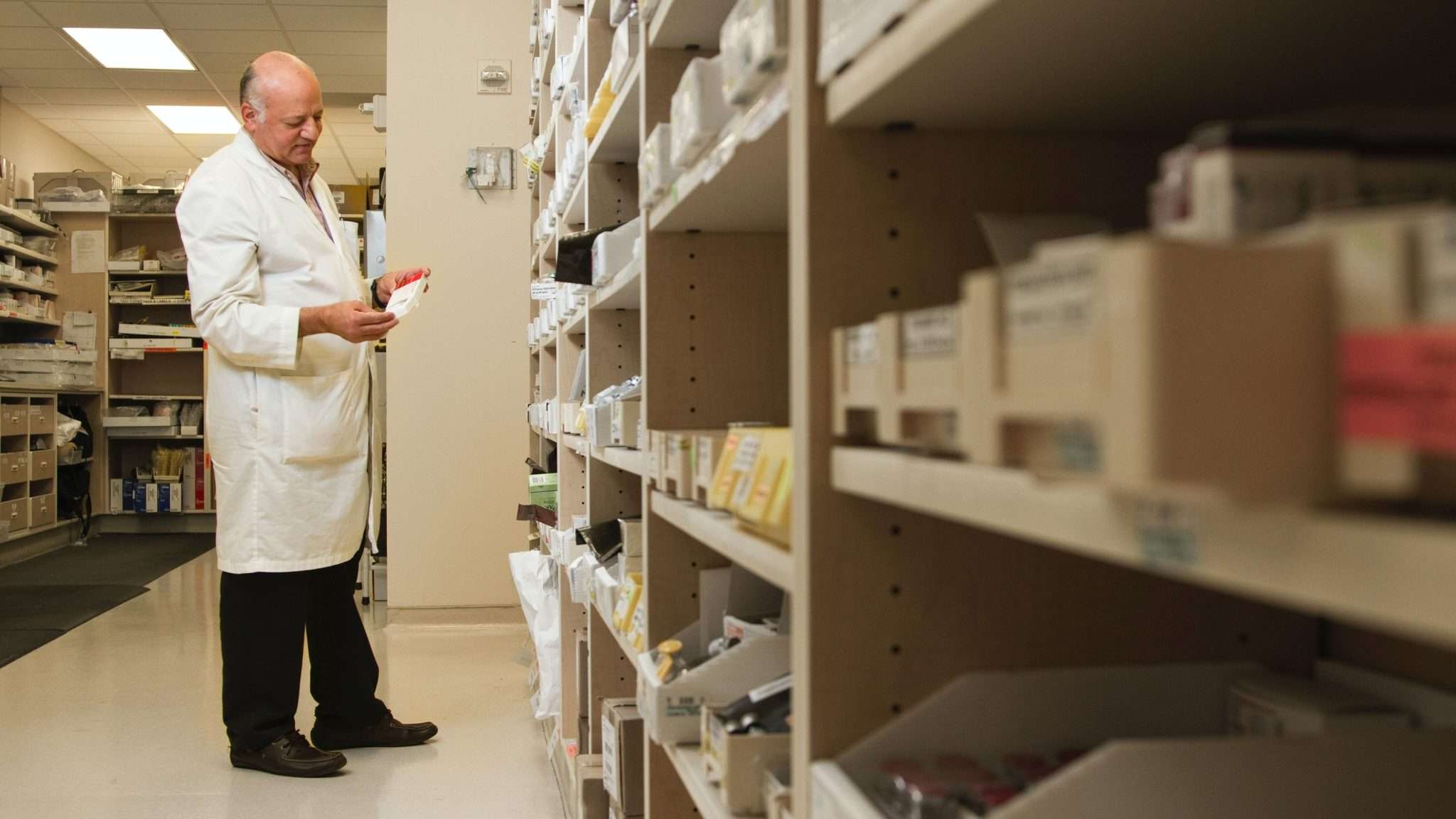Table of Contents
The accessibility of cough syrup in the UK may soon face significant changes due to growing concerns over misuse and addiction. Currently, cough syrup containing codeine can be purchased over the counter without a prescription and there are worries that this easy availability is contributing to the rising rates of codeine misuse 1, especially among young people. As a result, there is a proposal to make these cough syrups prescription-only to safeguard public health.
Codeine, an opioid found in certain cough syrups, can have powerful effects on the body. It is known to suppress coughs and relieve pain, but it also carries a risk of addiction and dependency. The misuse of codeine has become a pressing issue, with reports of young people using it recreationally or taking higher doses than recommended. This misuse not only puts individuals at risk, but it also strains healthcare resources and impacts public safety.
To address these concerns, the UK government is considering stricter regulations that would require individuals to obtain a prescription from a healthcare professional before being able to access cough syrups containing codeine. This proposed change aims to strike a balance between providing necessary relief for those who need it while mitigating the potential for addiction and misuse.
Concerns Over Misuse and Addiction
Cough syrup containing codeine, a mild opioid, has long been available over the counter in the UK. However, there has been a growing recognition of the risks associated with codeine misuse, including addiction and respiratory depression. As a result, there have been calls to restrict access to codeine-containing cough syrups to reduce the potential for abuse.
Codeine is an opioid that can produce feelings of euphoria and relaxation when taken in high doses. This has led to some individuals misusing cough syrup containing codeine as a recreational drug. The ease of access to over-the-counter cough syrup has contributed to its misuse, with some people taking higher than recommended doses or using it in combination with other substances to enhance its effects. This misuse not only puts individuals at risk of addiction and other health complications but also strains healthcare resources due to increased hospital admissions related to codeine overdose.

Reviewing the Accessibility of Cough Syrup
In a recent development related to public health concerns, the future availability of over-the-counter cough syrups, specifically those containing codeine linctus, is being reconsidered. The UK’s medicine safety regulator has been flooded with increasing reports of misuse and dependence on codeine-based medications.
The Medicines and Healthcare Products Regulatory Agency (MHRA) is now deliberating on making these medicines prescription-only. Their motivation? A growing apprehension about potential misuse and the health risks tied to it.
A typical codeine linctus solution is an oral syrup with the active component being codeine phosphate. Traditionally sold as a remedy for coughs in pharmacies, this medicine has, unfortunately, found its way into the hands of individuals seeking its opioid effects, furthering their addiction to pain-relieving medicines.
Dr. Alison Cave, the chief safety officer of the MHRA, commented, “While codeine linctus serves as an effective medicine, its opioid nature means misuse can result in serious health repercussions.”
Over the past half-decade, a concerning trend has emerged. Misuse of codeine and associated criminal activities have surged, with social media playing a role in promoting such behaviour. Since 2018, the MHRA has recorded 116 instances of recreational drug misuse related to codeine medicines.
The statistics are alarming: in 2021, 277 serious and fatal reactions were attributed to medicines with codeine. This figure slightly dropped to 243 in 2022 but rose sharply in the current year with 95 cases already reported.
Given these facts, the MHRA seeks feedback from health professionals and the public on the proposal to make these medicines available solely via a GP’s prescription.
Pharmacy professionals have voiced their support for this move. Prof Claire Anderson, president of the Royal Pharmaceutical Society, remarked, “While there’s a lack of solid evidence backing the benefits of codeine linctus for cough treatment, there are undeniable concerns about its addictive nature and overdose risks.”
For those worried about alternatives, she emphasises that there are numerous non-codeine-based products for treating dry coughs, which in many instances, resolves by itself.
A staggering 60% of the global population might be susceptible to opioid dependence2, as per some studies.

Free Addiction Assessment
Growing Codeine Misuse Among Young People
Concerns are rising about the increasing misuse of codeine among young people. Codeine, a common ingredient in cough syrups, is a mild opioid that can provide pain relief and suppress coughing. However, when misused, it can lead to addiction and other serious health consequences. The accessibility of cough syrup containing codeine has raised concerns as it is readily available over the counter in the UK. This ease of access has made it easier for young people to experiment with codeine, leading to a growing number of cases of misuse and addiction.
One of the reasons behind the increasing codeine misuse among young people is the perception that it is a safe and harmless substance. Many people, especially adolescents, may not be aware of the potential dangers and addictive nature of codeine. They may consider it as a recreational drug or use it to self-medicate for other issues such as anxiety or depression. This lack of awareness and education about the risks of codeine misuse contributes to its growing prevalence among young people.
Another factor contributing to the misuse of codeine is the easy availability of cough syrup containing this ingredient. Currently, these syrups can be purchased without a prescription, making it easier for young people to obtain them.
This accessibility allows them to bypass medical advice and use the syrups in higher doses or for longer durations than recommended. The combination of easy accessibility and lack of awareness about the risks creates a concerning situation where young people are putting their health at risk by misusing codeine.
It is crucial to address these issues through increased education and regulation to ensure the safe use of codeine-containing medications and to prevent the development of addiction among young people.

Effects of Codeine on the Body
When ingested, codeine is metabolised by the liver and converted into morphine, which then binds to opioid receptors in the brain. This binding action reduces the perception of pain and produces a sense of euphoria. However, codeine can also have several negative effects on the body. These include:
Constipation: One of the common side effects of opioids, including codeine.
Drowsiness and Dizziness: Codeine can induce drowsiness and dizziness; hence it’s advised not to operate heavy machinery or drive while under its influence.
Nausea and Vomiting: Some people might experience gastrointestinal issues.
Dry Mouth: A common side effect of many medications.
Adverse Effects
Respiratory Depression: Like other opioids, codeine can reduce the urge to breathe, which can be dangerous at high doses.
Dependency and Addiction: Regular or prolonged use can lead to physical dependence and addiction.
Allergic Reactions: Rash, itching, and other allergic reactions can occur.
Withdrawal Symptoms
Flu-like Symptoms: Withdrawal from codeine can result in symptoms like nausea, muscle aches, and irritability.
Mood Swings: Anxiety, depression, and irritability can be intensified during withdrawal.
It’s always recommended to take codeine under the supervision of a doctor, as they can provide guidance on the appropriate dosage and monitor for any adverse effects or signs of dependency. Misuse or abuse of codeine can lead to severe health issues, including the risk of overdose.

Download Our Brochure
Safeguarding Public Health: Proposed Changes for Access to Cough Syrups
Proposed changes in access to cough syrups are being considered to ensure the safety and well-being of the public. The UK is currently dealing with addiction concerns related to codeine and as a result, there are growing calls for these syrups to be available only with a prescription.
Codeine can cause harmful side effects such as respiratory depression and constipation. Making cough syrups prescription-only would provide an opportunity for healthcare professionals to evaluate a patient’s condition and determine if the benefits outweigh the risks.
Prescription-only access to cough syrups would also enable better monitoring and control of codeine use. Currently, these syrups can be easily purchased without any medical guidance, leading to potential misuse and dependency. By requiring a prescription, anyone seeking cough syrups must consult with a healthcare professional who can assess their symptoms and recommend appropriate treatment options.
This would not only prevent unnecessary codeine exposure but also educate patients about the potential risks and alternative treatments available. Ultimately, the proposed changes aim to strike a balance between ensuring access to necessary medications while safeguarding public health from the risks associated with codeine addiction.

Discover Hope and Healing at Castle Craig
If you suspect you may be addicted to cough syrup or you’re concerned about a loved one, reach out to us today for a free assessment.
With over three decades of experience, Castle Craig has helped countless patients regain control of their lives. We provide a range of evidence-based therapies proven to treat drug addiction.
Our personalised treatment plans are designed to cater to your individual needs and circumstances. With a blend of therapies, including the renowned 12-Step12 Step programme, you’ll embark on a transformative journey toward lasting recovery.
📞 Call us now: 01721 546 263
Your path to lasting recovery starts here.
1MHRA launches public consultation on reclassification of opioid-containing cough medicine
2 MHRA launches public consultation on reclassification of opioid-containing cough medicine

